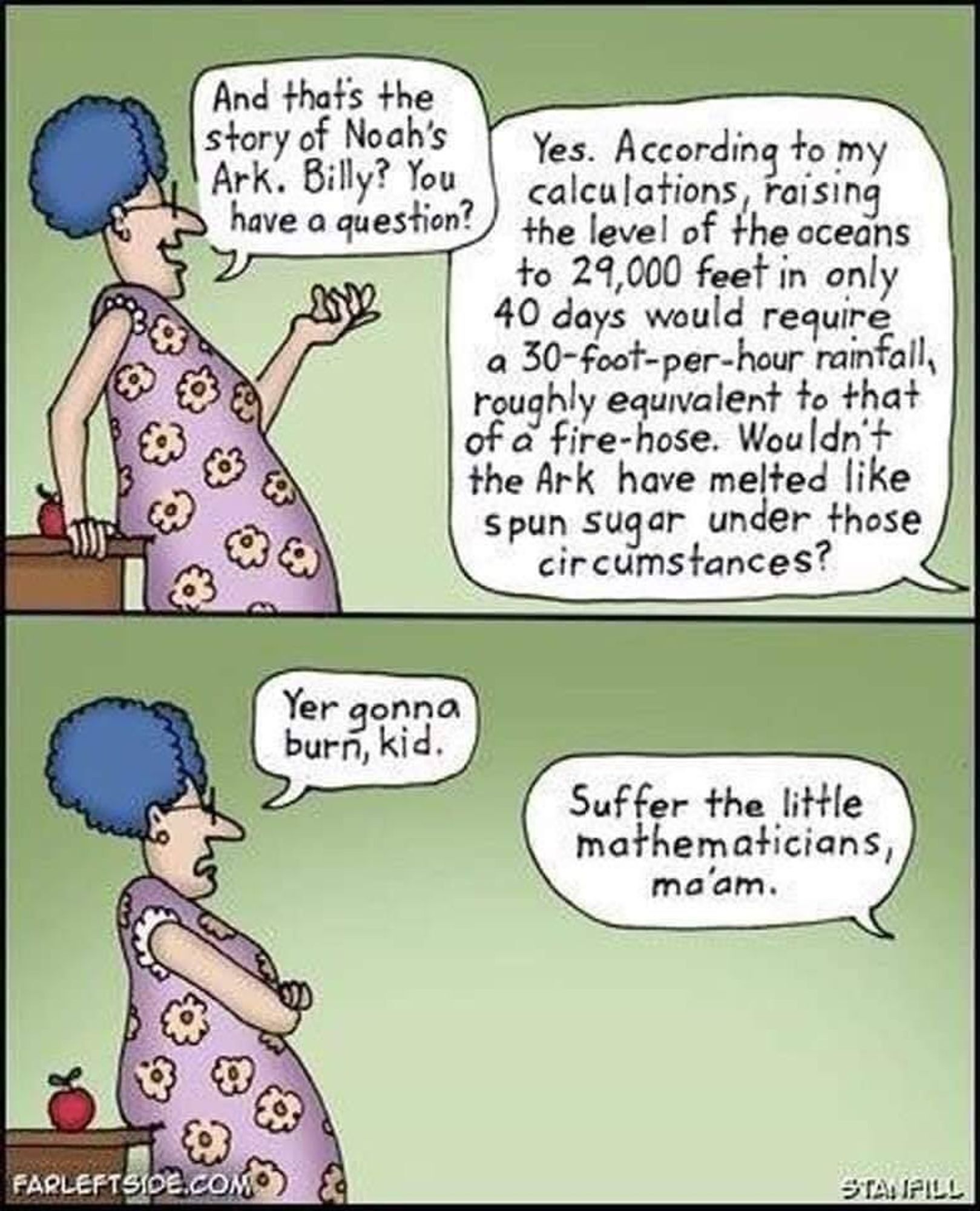this post was submitted on 10 Mar 2024
941 points (94.3% liked)
Comic Strips
12763 readers
3988 users here now
Comic Strips is a community for those who love comic stories.
The rules are simple:
- The post can be a single image, an image gallery, or a link to a specific comic hosted on another site (the author's website, for instance).
- The comic must be a complete story.
- If it is an external link, it must be to a specific story, not to the root of the site.
- You may post comics from others or your own.
- If you are posting a comic of your own, a maximum of one per week is allowed (I know, your comics are great, but this rule helps avoid spam).
- The comic can be in any language, but if it's not in English, OP must include an English translation in the post's 'body' field (note: you don't need to select a specific language when posting a comic).
- Politeness.
- Adult content is not allowed. This community aims to be fun for people of all ages.
Web of links
- !linuxmemes@lemmy.world: "I use Arch btw"
- !memes@lemmy.world: memes (you don't say!)
founded 1 year ago
MODERATORS
you are viewing a single comment's thread
view the rest of the comments
view the rest of the comments

Here's the thing, society formed around agrarian settlements. What do you need for crops, livestock, AND people? What makes transporting your goods easier? If you said water, you get a prize. Many of our settlements, both modern and historic, were near water sources. Water sources flood. Inevitably, water sources experience thousand-year flood events, and completely swamp a huge area, maybe even wiping out one or more settlements. As you start going back in history, you also start dealing with glacial dam rupture events, which also almost certainly scoured away everything downstream and would have seemingly come out of nowhere at all.
The phenomenon of the global flood myth is really just that people live near water, and when you live near water, shit happens.
Upvoting, b/c that too:-).
I was just hyper-focusing on how that particular event, shared by other cultures in that identical region, told that same story about it, not b/c "they made it up", but b/c it actually did really happen... and yet, at the same time, looks nothing at all like the picture books, which have pictures of like Toucans and such that those people likely never saw in their entire lives, but I guess enhance the sales of the picture book and thus that exists now.
Ofc there are other possibilities too - perhaps the story of the ark refers to a spaceship that emigrated humans from elsewhere, originally. Stargate: Atlantis (spin-off series from Stargate SG-1) explored that thought, as did the 2009 movie "Knowing" with Nicholas Cage:-D. I guess you could argue that the movie "The Matrix" did as well - the ark being far more figurative in that one, but where people + their surroundings were taken elsewhere after dying off in the original location.
Truth sure is stranger than Fiction:-) - and correspondingly, much harder to describe. So like if we had to describe "the world-wide flood event" to a child, it would be both "yes it actually did happen" (most likely) plus also "it wasn't quite like that".
I don't think you have to even assume that every Mesopotamian flood myth is referring to the same event. The Tigris and Euphrates were very prone to massive flooding.
Yes. I mentioned it as "supporting evidence", but good clarification.